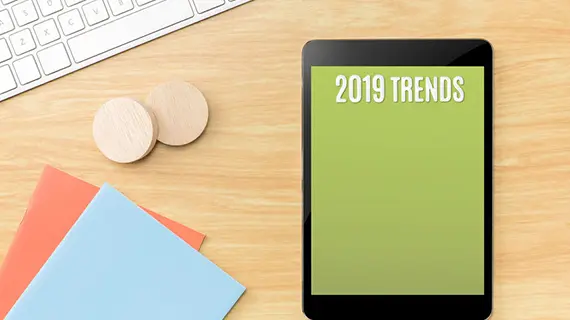
If you’re building an eCommerce strategy this year, or are reviewing your existing strategy, it’s the perfect time to consider if emerging technology trends can help you achieve your goals. Digital commerce has changed the dynamics of the B2B marketplace, causing wholesalers and distributors to rethink their strategies in order to maintain their competitive footing. As you bolster efforts to enhance your eCommerce offerings and the user experience, bet on these three big trends to help pave your way:
Blockchain technology
From a business management perspective, blockchain technology is going to be a game-changer for the wholesale sector. Initially developed to allow safe, real-time transactions of cryptocurrency like Bitcoin, blockchain is now being used to improve the supply chain.
In the B2B marketplace, blockchain can provide more transparency and visibility of product data, giving businesses a clear view of every product throughout its lifecycle. As it moves through the supply chain, the software tracks the product’s location, housing the information within a single, shared database. To provide added security, a set of controls determines what each database member or user can see or do with the data. By monitoring products at every touchpoint, companies are able to track issues immediately and resolve them more quickly – which translates to fewer errors, greater efficiencies, and more cost savings.
Walmart is one of the first retailers to incorporate blockchain technology into their food distribution channel, but industry experts predict B2B online merchants like Alibaba and Amazon Business will soon follow suit to become a differentiator in the marketplace. Get a head start on the competition and start looking now into blockchain applications that can bring greater transparency and efficiency to your business.
Personalization
Buyers have come to expect a personalized online experience where the retailer seems to know exactly what they’re looking for by providing them with products and content tailored to their needs. This method of creating personal interactions is known as personalization, and it’s a must-have for any wholesaler or distributor with an online presence. With the help of personalization tools, businesses can create more meaningful and relevant experiences for buyers at every touchpoint, beginning with targeted messaging and promotions via e-mail marketing campaigns and continuing with dynamic content and product recommendations on their eCommerce site.
Analysts predict that customer experience will replace product and price point as the key differentiator in the B2B marketplace by 2020, and expect those companies that offer a more personalized experience to outsell their competition by 30%. Distributors echoed these sentiments in our 2018 B2B Digital Commerce Survey. Results showed 63% of respondents think personalization of the eCommerce experience is the most important competency they will need three years from now. If you want to make aspects of your site relevant for each visitor, make sure your eCommerce platform has a robust experience management system with personalized functionality.
Internet of Things (IoT)
The term “Internet of Things” (IoT for short) sounds a bit abstract, but it’s actually a very tangible concept that is gaining enormous popularity. IoT refers to the connection of devices or objects (ones that normally wouldn’t have a digital connection) to the Internet, which then collect and communicate data across networks without human interaction. While IoT may be more familiar to people on the consumer front – think smart speakers like Google Home or Amazon’s Alexa that have the ability to turn on lights or operate a coffeemaker – this technology is quickly building traction in the B2B marketplace.
Manufacturers are adding sensors to the components of their products so that they can transmit back data about the product’s performance. Used in tandem with blockchain technology, companies can collect more accurate information to help them better manage inventory and logistics, project future maintenance on products, and improve the overall customer experience.
Unilog’s CEO, Suchit Bachalli, feels IoT is causing a paradigm shift for distributors as well: from helping customers find their site, to making themselves discoverable. Bluetooth beacons and QR codes, for example, are emerging technologies that eliminate the need to search for products using a traditional web search with a browser. The beacon gives users complete control to decide what they want to do next, whether it be to learn more about the product, order it, or contact the seller with questions. “With IoT innovations like these,” Bachalli says, “we can change the beginning of the buyer journey from search to knowledge; that’s a huge transition for buyers.”
To compete in today’s B2B marketplace, you need a strong digital commerce strategy that evolves as technology and business needs change. Blockchain, personalization, and IoT are three promising ways to enhance your eCommerce offerings, streamline your business, and maintain your position as a market contender.